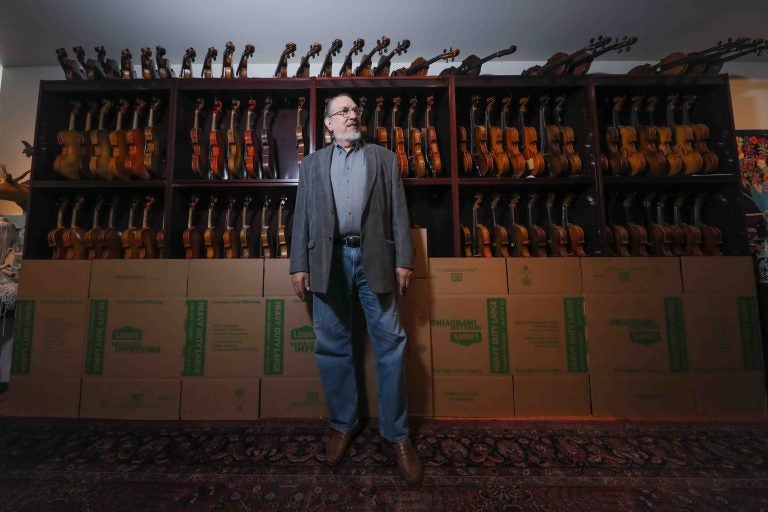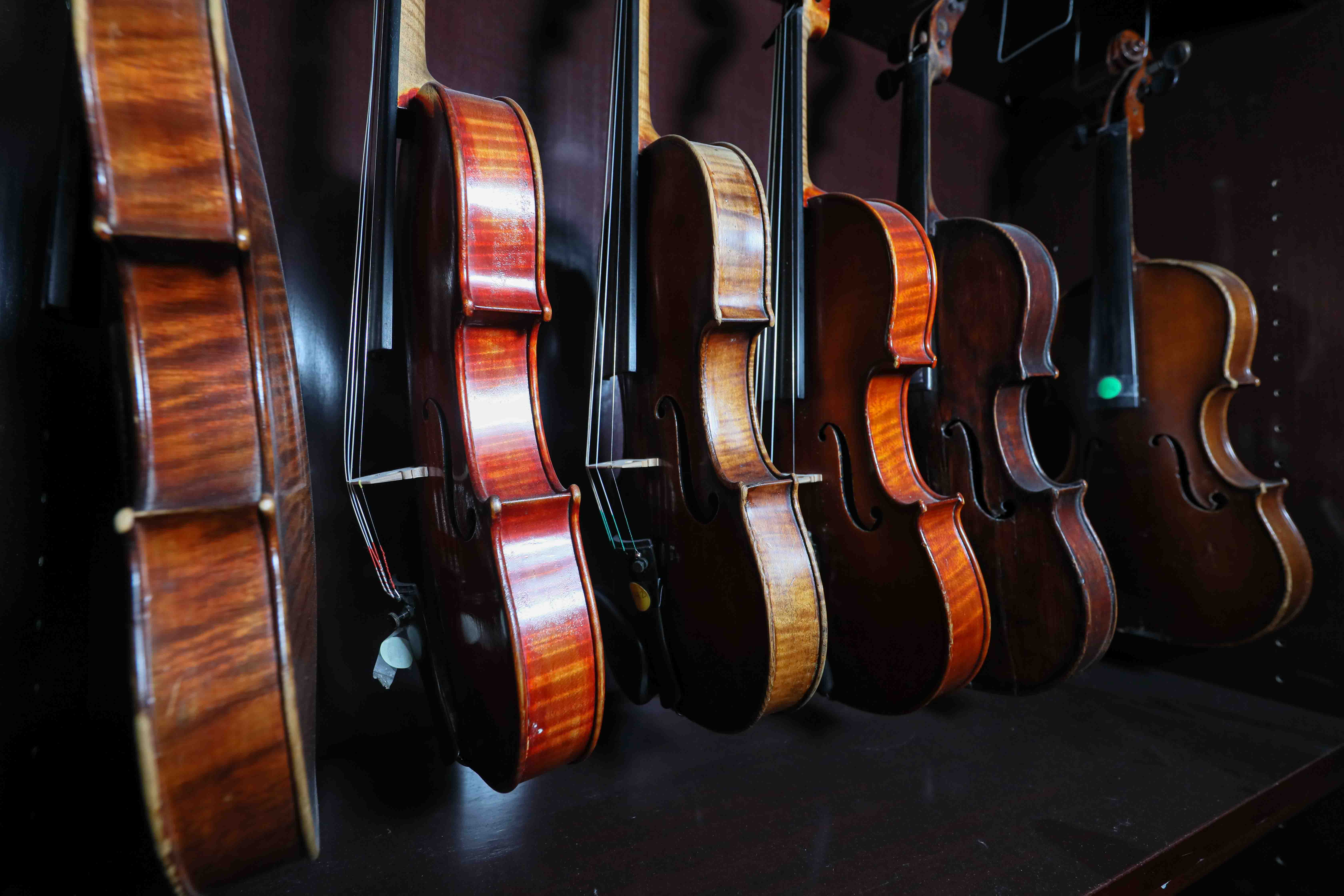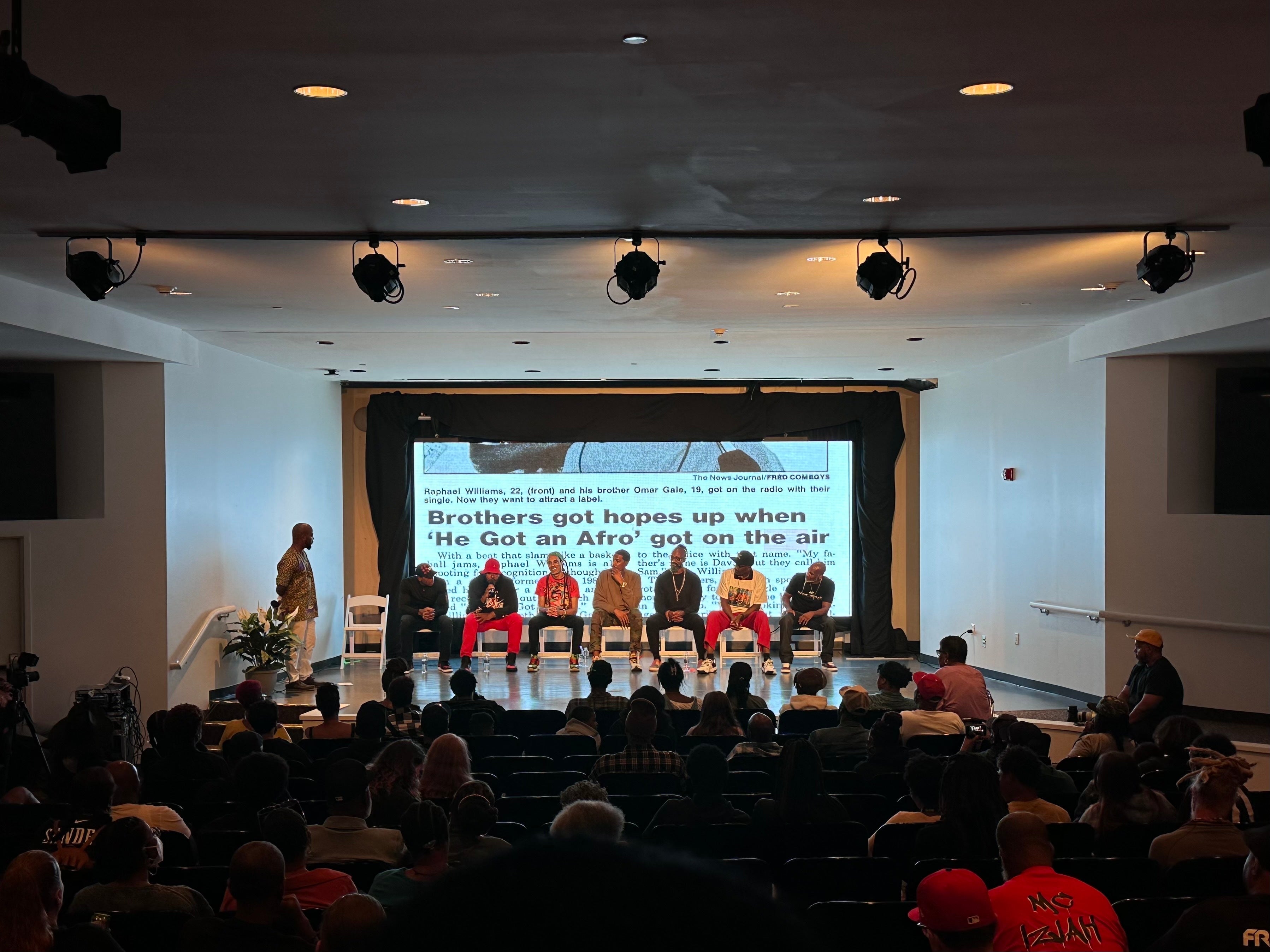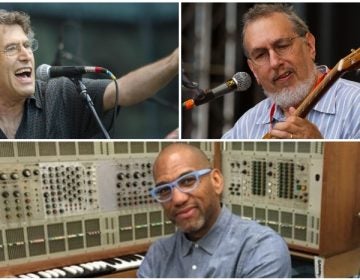David Bromberg to sell his fiddles after Library of Congress deal fizzles
David Bromberg had forged a deal with the Library of Congress to have the largest American-made violin collection kept there. But the plan hit a sour note.
Listen 5:24
Singer-songwriter and session musician David Bromberg stands in front of a portion of his collection of violins. (Saquan Stimpson for WHYY)
Musician David Bromberg began collecting American-made violins about a half-century ago and has amassed the world’s largest collection.
He had planned to have them showcased in the Library of Congress, but that plan fell through.
So now the 73-year-old Bromberg, who owns a violin shop in Wilmington, says he has no choice but to liquidate his treasured fiddles.
Bromberg and his wife, multimedia artist Nancy Josephson, had forged a deal in 2016 with the Library of Congress. The couple would donate two-thirds of his collection and the library would raise $1.7 million to purchase the rest and provide maintenance and programming. Bromberg earlier donated his papers to the library in Washington, D.C.
But the violin deal ended on a sour note. Last year, library officials notified the couple that it could not raise the money but would accept the entire collection if they would donate it and raise $200,000 for maintenance and programming.
Bromberg and Josephson shared a letter outlining the situation that the library sent to U.S. Sen. Tom Carper, a Delaware Democrat.
Officials at the Library of Congress did not respond to requests for comment.
Bromberg spoke with WHYY at his Wilmington loft above the shop. He left Thursday to perform a handful of concerts in Italy.
“Unfortunately, almost as soon as the contract was signed, the top brass of the library left,’’ Bromberg said. “And the new people who came in, like all new people, were not interested in what the old people were interested in.
“But we weren’t told any of this. Toward the end of the two years, we found out that they had contacted two people … It was a frustrating experience in many ways.”
Bromberg and his wife tried to raise money to salvage the deal. But they could not, and notified friends this month in a letter, thanking all for being “advocates, surrogates, and cheerleaders.”
If nothing changes, Bromberg said, “it looks as though we are going to break up the collection.”
The couple has “been receiving communications with people with this idea or that idea,’’ he added. “Most of those things we have already explored. If anybody comes up with something different, I would love to keep it together, and I would love to have it at the Library of Congress.”
Josephson said selling the pieces “will be a hard slog and it will be sad, but as I said, life can be full of disappointment.”

Eclectic musician has ‘collector’s bent’
Starting in the mid-1960s, Bromberg carved out a unique niche for himself in the annals of American music.
Known best for his eclectic guitar playing and storytelling, he plays several other instruments, including the violin.
He rarely plays the instrument these days, and never on tour, but his home is almost overwhelmed by them.
The walls on the second floor of his Wilmington loft are adorned with 260 of the 263 violins he bought all over the country at specialty shops, flea markets, and antique stores. The three most expensive instruments are in a safe downstairs at his shop.
Bromberg said the collection has been appraised at up to $4 million. All the violins were constructed from 1848 to 1950.
“I used to play a lot more than I do now. But I play a little violin, fiddle, country fiddle,’’ he recalled.
“I bought a fiddle, and as it happens the first one I bought was American and I have a collector’s bent, and I started collecting American fiddles and I was quickly informed there are no good ones, and I couldn’t understand that,” he said. “I don’t think Americans are genetically inferior to Europeans, so I couldn’t understand why there couldn’t be any good American violins.”
“As it turns out, everybody was wrong, and there are a lot of good American violins,” he added. “And that’s now accepted, but it wasn’t when I started collecting. I’m told I changed it.”
Philadelphia violin shop owner Christopher Germain, past president of the Violin Society of America and co-author of “The American Violin,” agrees that Bromberg’s collection is special.
“David’s collection is truly unique in the world of stringed instruments,’’ Germain told WHYY. “Other people have collected American violins to a lesser extent, but the completeness of his collection is unique. There’s no other collection like it in the world.”
Josephson said the collection is so much more than the instruments themselves. The violins are the fruits of her husband’s laborious research project — a living document.
“This is a study, a hardcore study, and it’s really sleuthing, detective work, putting things together,’’ she said.
“And he went to violin-making school, not necessarily to be a violin maker but to really understand how these pieces form together, the art form behind each individual violin, which is truly an individual entity, object.”
Bromberg nevertheless is clinging to a sliver of hope that the deal can be salvaged.
“I haven’t given it up completely,’’ he said. “I need someone who likes musical instruments and understands that this is about our country’s heritage.”
North Carolina violin maker John Montgomery also contributed to the book on American violins. He said there is a silver lining if the collection gets sold.
“The good news is that they are desirable and people will play them and use them and the history of American violins will continue,’’ Montgomery said. “It’s something you don’t just collect, but you have to perform, play and use it to make them meaningful.”
WHYY is your source for fact-based, in-depth journalism and information. As a nonprofit organization, we rely on financial support from readers like you. Please give today.





